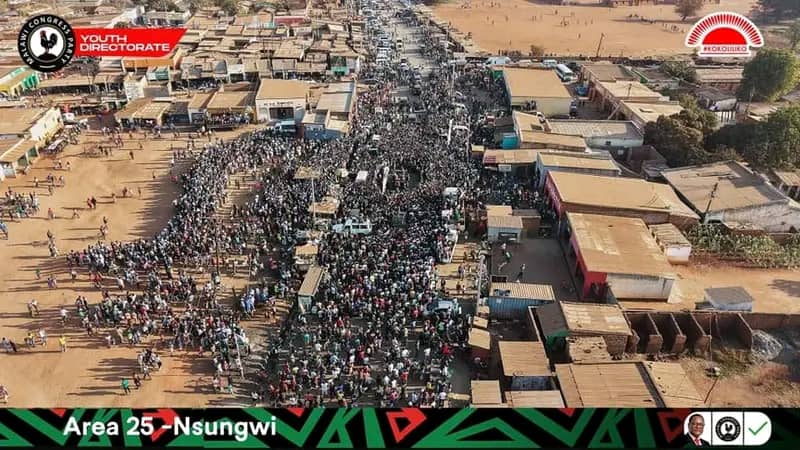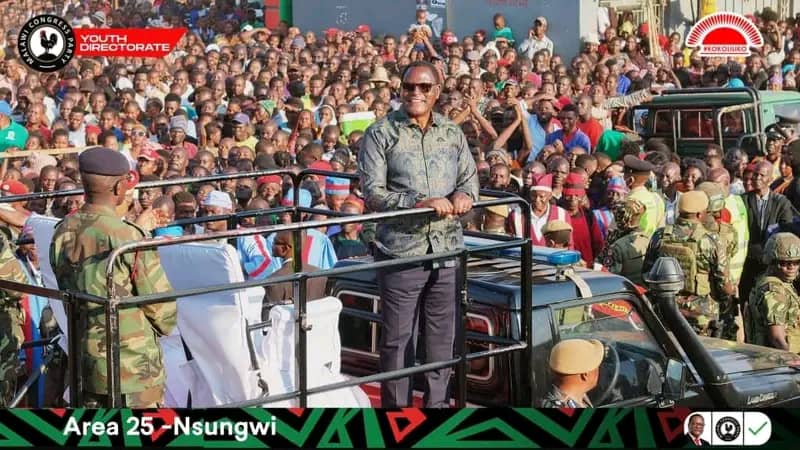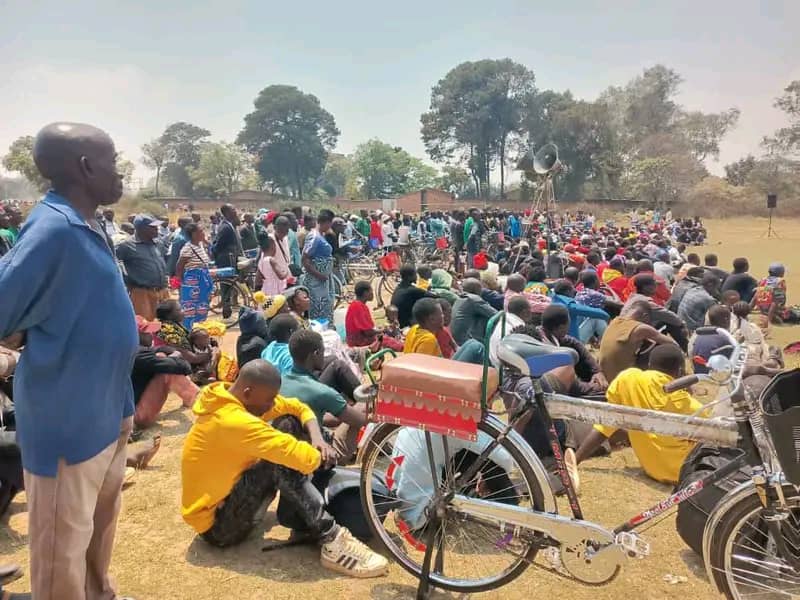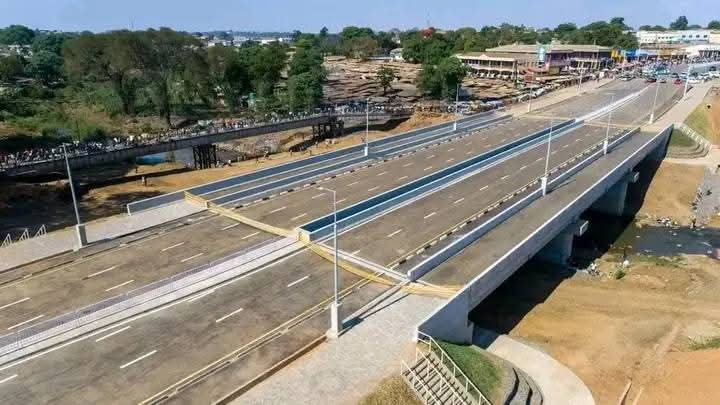By Burnett Munthali
On Sunday, 23 August 2025, President Lazarus Chakwera visited Area 25 Nsungwi as part of his ongoing whistlestop campaign.
The visit is part of his nationwide efforts to engage citizens and secure support for a second term in office.
During the stop, Chakwera addressed a gathering of enthusiastic residents who had come to hear his vision and campaign promises.

He highlighted achievements from his first term, emphasizing improvements in infrastructure, social services, and governance reforms.
The President outlined specific economic initiatives in his manifesto, including plans to expand agricultural support programs for smallholder farmers, promote local industries, and attract foreign investment to create sustainable employment opportunities.
Chakwera also detailed healthcare commitments, promising to expand access to primary healthcare facilities, increase the supply of essential medicines, and strengthen maternal and child health programs across the country.
On education, he pledged to improve school infrastructure, provide teaching materials, and enhance teacher training programs to ensure quality education for all children, especially in rural and underserved areas.
He emphasized that these policies aim to reduce poverty, improve human capital, and create opportunities for Malawi’s youth to thrive in a rapidly changing economy.
Supporters welcomed his visit, waving party flags, chanting slogans, and expressing optimism about his leadership.
Chakwera’s whistlestop campaign strategy aims to connect with voters at the grassroots level and communicate his administration’s achievements and future plans directly.
Observers noted that such visits are crucial for reinforcing voter confidence and demonstrating a hands-on approach to leadership.
The event also underscored the competitiveness of the 2025 electoral season, with multiple candidates actively campaigning across Malawi.
Concluding Analysis
President Chakwera’s visit to Area 25 Nsungwi reflects his determination to engage citizens personally and present a compelling case for re-election.
By outlining both past achievements and detailed manifesto promises in economy, healthcare, and education, he seeks to reassure voters of his capacity to deliver sustained development.
The whistlestop underscores the importance of direct voter interaction in building trust, demonstrating commitment, and maintaining political momentum.
As Malawi heads into the September elections, such engagements and clear policy commitments may prove decisive in influencing public perception and securing electoral support.
Malawians will be watching closely to see whether these promises translate into tangible improvements in their daily lives, making accountability a key factor in the upcoming vote.




